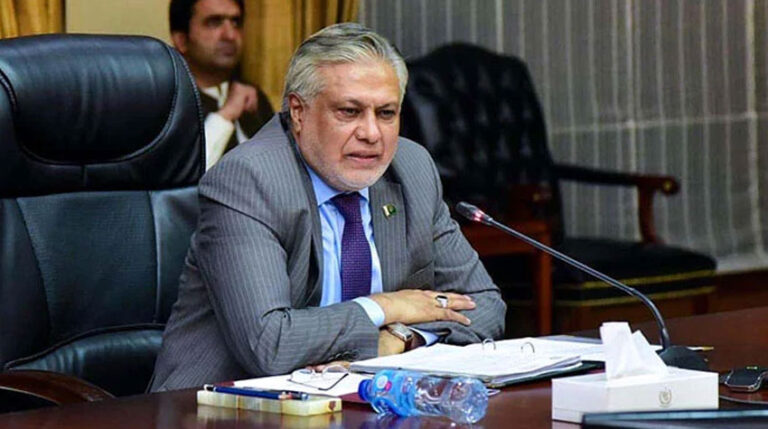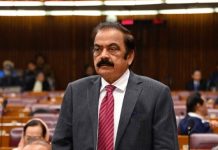By Ali Imran
ISLAMABAD: The newly-appointed foreign minister on Tuesday asked the foreign office to play its role in mitigating the country’s economic problems as Ishaq Dar was given maiden briefing on external challenges.
Dar, who in the past remained a first choice of Pakistan Muslim League-Nawaz (PML-N) to manage the country’s economic and financial affairs, formally assumed the role of foreign minister.
On his arrival at the foreign ministry in Islamabad, he was received by Secretary Foreign Affairs Muhammad Syrus Sajjad Qazi and other senior officials.
The foreign minister was briefed by the foreign secretary and additional secretaries on Pakistan’s foreign policy and priority areas.
As they say old habits die hard, the maiden address of foreign minister focused more on the economic challenges than foreign policy matters.
According to insiders, Dar gave an overall perspective to foreign office bigwigs about the state of Pakistan’s economy. He backed his address with numbers and other facts, something that many foreign office officials struggled to comprehend.
One source told The Express Tribune that Dar wanted the foreign office to play its role in resolving the economic problems. He stressed the need for economic diplomacy and asked the foreign office to task its missions abroad to form their policies accordingly.
The foreign minister also directed the officials to focus on encouraging investment from abroad.
Earlier, Dar was given a briefing by the foreign secretary and additional secretaries looking after different regions and countries.
The foreign minister was told that China remains Pakistan’s trusted friend. There was no substitute to China, which continues to be the mainstay of Pakistan. China’s timely financing and rollover of loans last year prevented a potential sovereign default of Pakistan.
Since Dar took lot of interest in economic diplomacy, he was informed that Gulf countries were keen to make investment in Pakistan. However, those countries wanted “doable and tangible” projects where they could invest.
On India, Dar was informed the current state of relationship between the two neighbours.
Foreign office officials told the minister that current Indian government was following a “Hindutwa” policy. This was not just rhetoric but BJP government was aggressively taking steps to implement this policy, according to the assessment of foreign office shared with Dar.
He was informed that in the present circumstances India continued to seek Pakistan’s isolation and wanted to put maximum pressure. In view of this strategy, there were grim chances of any rapprochement between Pakistan and India.
Relations between Pakistan and India have remained standstill since last many years. The real dip came in August 2019 when India revoked the special status of disputed Jammu and Kashmir region.
In reaction to the move, Pakistan downgraded diplomatic ties and suspended trade. Efforts to break the impasse in the past failed.
Following the February 8 polls, Indian Prime Minister Narendra Modi greeted Shehbaz Sharif on election victory but his unusually terse statement raised many eyebrows. Shehbaz responded with a similar brief statement thanking him for the felicitations.
Observers believe that given India is heading for elections therefore Modi government would not like to make any moves showing flexibility towards Pakistan. Both sides are likely to wait and watch before taking any steps paving way for the ice break.



